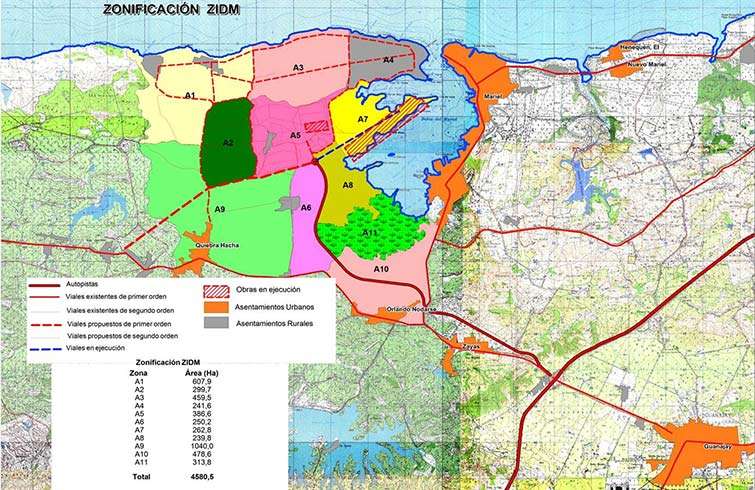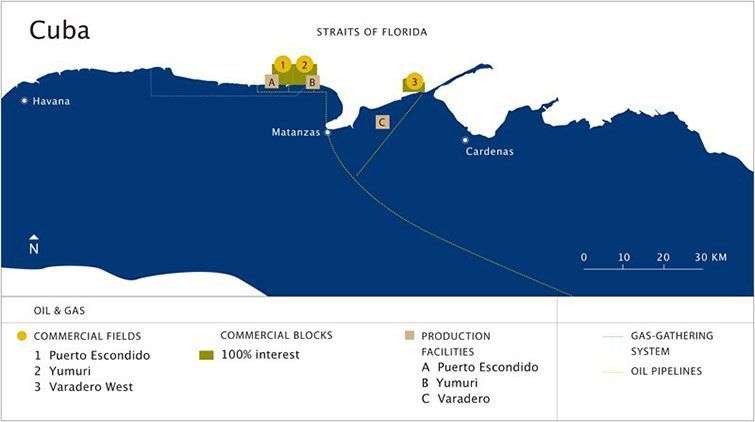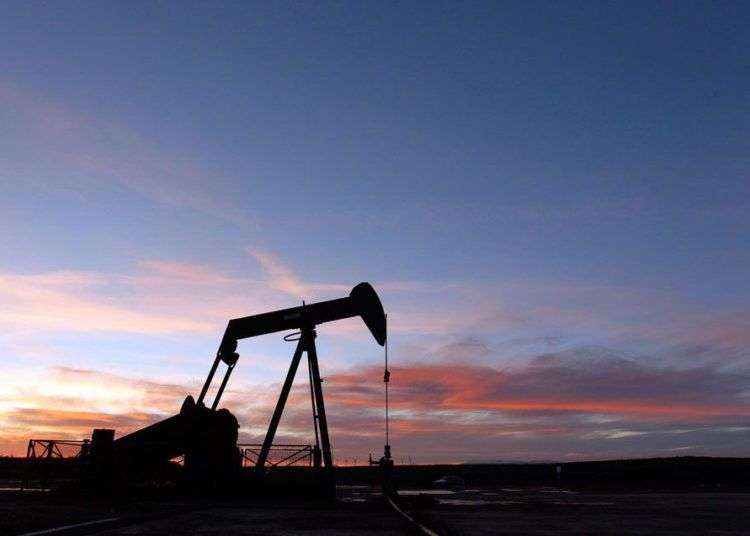Authorities and businessmen in the country this week are participating in the XXI World Petroleum Congress in Moscow, where they will present the possibilities of foreign investment in hydrocarbons. The meeting will be a great business opportunity for the island, as Rafael Tenreyro, head of group exploration Union Cuba Petroleo (Cupet) told reporters.
Plans foreshadow a greater presence of foreign capital especially in the central and north eastern coast, while continuing exploration in deep waters of the Exclusive Economic Zone (EEZ) in the Gulf of Mexico.
The entry into force this month of the new Foreign Investment Law, gives greater importance to the Cuban participation in the event, because these rules include the energy sector as a priority in its portfolio.
Recently it was announced the signing of two cooperation agreements between Cupet and Russian companies Rosneft and Zarubezhnetf, so this appointment could help strengthen relationships with current and future partners from that country, one the largest oil producers and exporters in the world.
These agreements include developing oil exploration plans and establishing a logistics base for Rosneft in the Special Development Zone Mariel. There are 241.6 acres, corresponding to the A-4 sector, for a specialized logistics services in the off-shore prospecting and exploitation of oil.

Recently, it was also news that the Canadian firm Sherritt present in Cuba since 1992 renewed for 10 more years its contract with Cupet, allowing it to exploit jointly oil and natural gas wells in the country until 2028.
The website of the company – which last year produced about 20,000 barrels of oil a day in Cuba, argues that on the island there is potential for growth in this industry.
It also mentions that its plans to increase yields envision the use of heavy oil recovery technologies, like gas injection: “The Corporation believes that the modest increases in these factors slow recovery can significantly increase its reserves.”
Today companies from France, China, Vietnam, Spain, Venezuela, Malaysia, Norway, India, Angola, Russia and other nations, have operations in the EEZ, which covers 112,000 square kilometers, divided into 59 plots. There are four wells have been drilled, but no results so far.
Such maneuvers carry a high technical complexity, plus the difficulties caused by the US blockade. For a semi-submersible rig to operate in Cuban deep water it cannot have more than 10 percent of U.S. components; otherwise, it will be prevented from working for six months on projects with the United States. Meanwhile, potential U.S. partners are forbidden to participate in oil operations in and with Cuba.
Besides the deep water possibilities, there are offers of agreements for risk exploration in blocks available on land and shallow waters, the Chamber of Commerce explains foreign entrepreneurs that arrive in business missions. Such possibilities promise to multiply once it Act 118 starts working along its portfolio of opportunities.
During parliamentary debates to approve the Law, Rodrigo Malmierca, Minister of Foreign Trade and Investment, discussed the relevance or need for a hydrocarbons law, taking into account the process of institutional and legal framework of the country. In this context, there is the creation in November 2012 of the Ministry of Energy and Mines, in charge of regulating and running the sector´s policies.
The oil issue is particularly important for the island, as the fuels mean large expenditure within the onerous imports each year. Here emerges the dependence on the system of agreements with Venezuela, under which Cuba receives preferential treatment in terms of loans and supply.
In light of these relations, the Cienfuegos refinery began production in 2007, after 18 months of work to reactivate it, after being paralyzed in 1995.
According to the journal Energy for integration-edited by the subsidiary PDVSA Cuba SA-the industrial complex in 2012 exceeded 100 million barrels of oil processed, always under the direction of the joint venture Cuvenpetrol SA
On the other hand, some derivatives arising from refining become exportable item, second only to nickel and above generic biotech drugs, sugar, cigars, rum and fishing.
Although it is contradictory for some scholars that Cuba enhances processing crude as economic activity-when it doesn’t generate enough raw material to sustain it-and others vote for it, as this process of “adding value” without counting on domestic production, historically it has presented good results; for example in Japan, with steel, and in several European countries, with coffee and chocolate.
That publication explains that currently exist technologically projects to improve and expand the refinery in Cienfuegos and Santiago de Cuba, and build another in Matanzas.











